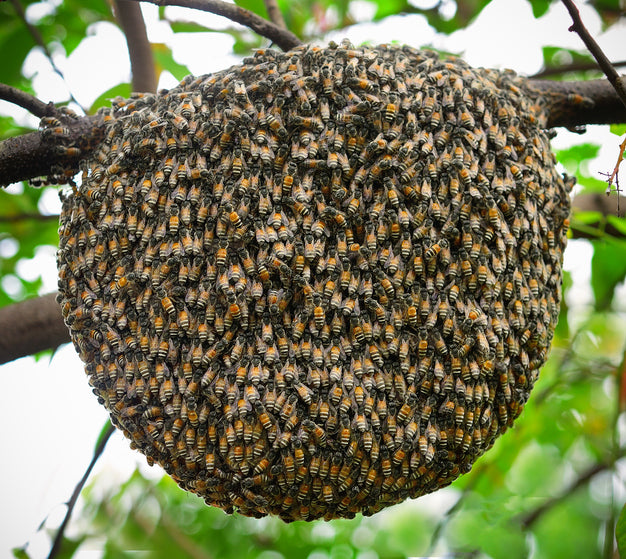
The decline of insects
For those that are as old as I am you can probably remember those long summer holiday motorway drives, sweatily sticking to plastic seats and seeing the windscreen slowly blot out as insects of all shapes and sizes ended their lives with a splat. That was one of the kids jobs at the petrol station- using the windscreen scraper to clean the windscreen whilst mum or dad filled up the car with petrol.
These days you get the occasional insect splatter but in order of magnitudes less. I have witnessed in my own lifetime the reality of the collapse in insect numbers. Quite a few sources now put this at something like a 70% collapse in the population in the last 40 odd years.
I have always been fascinated by bugs, but I appreciate they don’t have the same emotional tug as a baby seal pup. But insects are essential to the ecosystem in general (think of swallows diving through the summer skies homing in on all those bugs). But even more importantly to the pollination of all plants- from that apple blossom to the initial flowering of the quinoa plant. Without insects you don’t get pollination. Without pollination you don’t get fruit, vegetables or cereals.
Simple as that. Insects are essential to our food chain.
So why have insects disappeared?
When your average wheat field gets sprayed with 7 applications of pesticides as it grows, that is probably your answer. Pesticides kill pests also known as insects. But you will also get 7 applications of herbicides, to kill all those pesky weeds. Weeds include things like poppies which used to punctuate wheat fields everywhere, providing insects with plenty of food (nectar) versus their pollination services. Which is why more and more road sidings are being left unmowed by the way, to allow plants to flower and provide food and habitat to our creepy crawly and flying friends.
Quinola Organic Quinoa
This is why we only sell Peruvian organic quinoa, with no pesticides or herbicides allowed, as well as our French grown wholegrain quinoa which is very nearly organic. In the latter case no herbicides are allowed but a single application of pesticide during flowering is allowed, if needed, to keep the aphids under control before the ladybirds do it for us. If not, you would lose half the crop. You will find no traces of chemicals in any of the quinoa we sell, unlike conventionally farmed quinoa that will have the clear trace of chemicals in it. When you visit the farms in France or Peru you can hear a positive buzz of insects. Some admittedly are a nuisance, such as the hover fly in France that sticks its needle proboscis into immature quinoa seeds, sucking out the rich creamy inside before it has had a chance to harden into a seed that you can eat. But try standing next to a conventionally farmed wheat field. Silence. You could hear a pin drop. No insects survive that level of chemical warfare.
This is why you get the insane situation of humans having to pollinate fruit trees in China.
Or in California where more than half the US bee population is trucked or freight-trained in, whilst all the fruit trees are flowering. The bees pollinate, with around a third leaving their lives in California succumbing to the chemical residues from the previous year, before the survivors are shipped back to their origin states of safety. The chemicals are then unleashed again, ensuring you don’t get maggots in your apples or caterpillars in your almonds, but also ensuring insect life and the pyramid of life it supports is decimated.
Remember Agent Orange from Vietnam, that would strip trees of all their leaves. Or DDT that was widely applied to crops in Europe. Now both banned substances.
Moving Forward
It is time that we recognise the need to use chemicals less intensively in our farming and find the right balance between optimising yields against damaging the environment and so our medium term interest.
Which is why with Quinola you can be confident we do our best to tread lightly. We will never be perfect, and don’t aim to be so. But we will do our best and encourage the farmers we work with to do so too.
Shop our grains here
